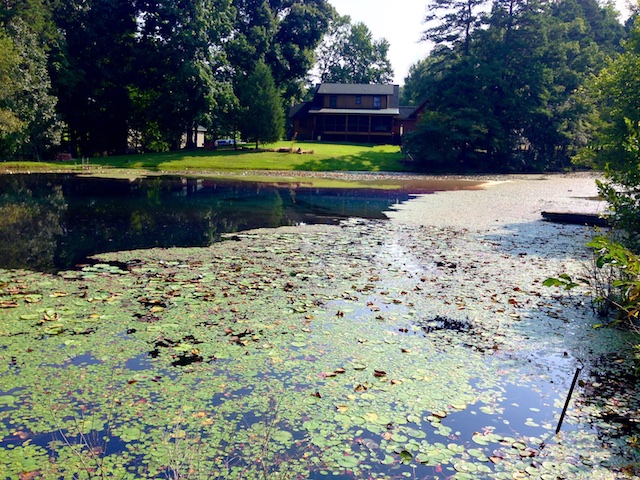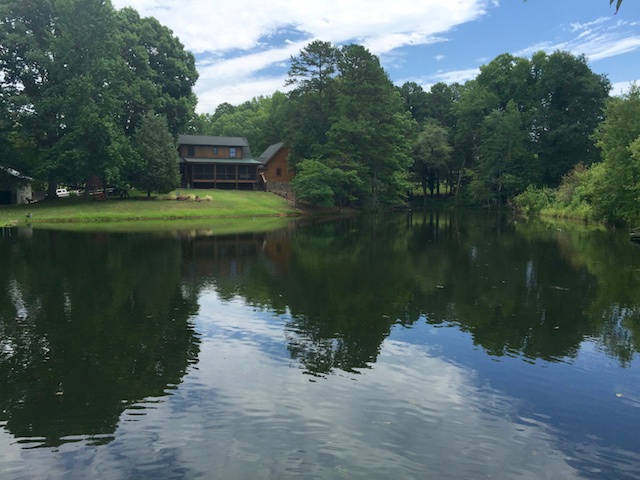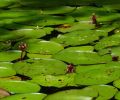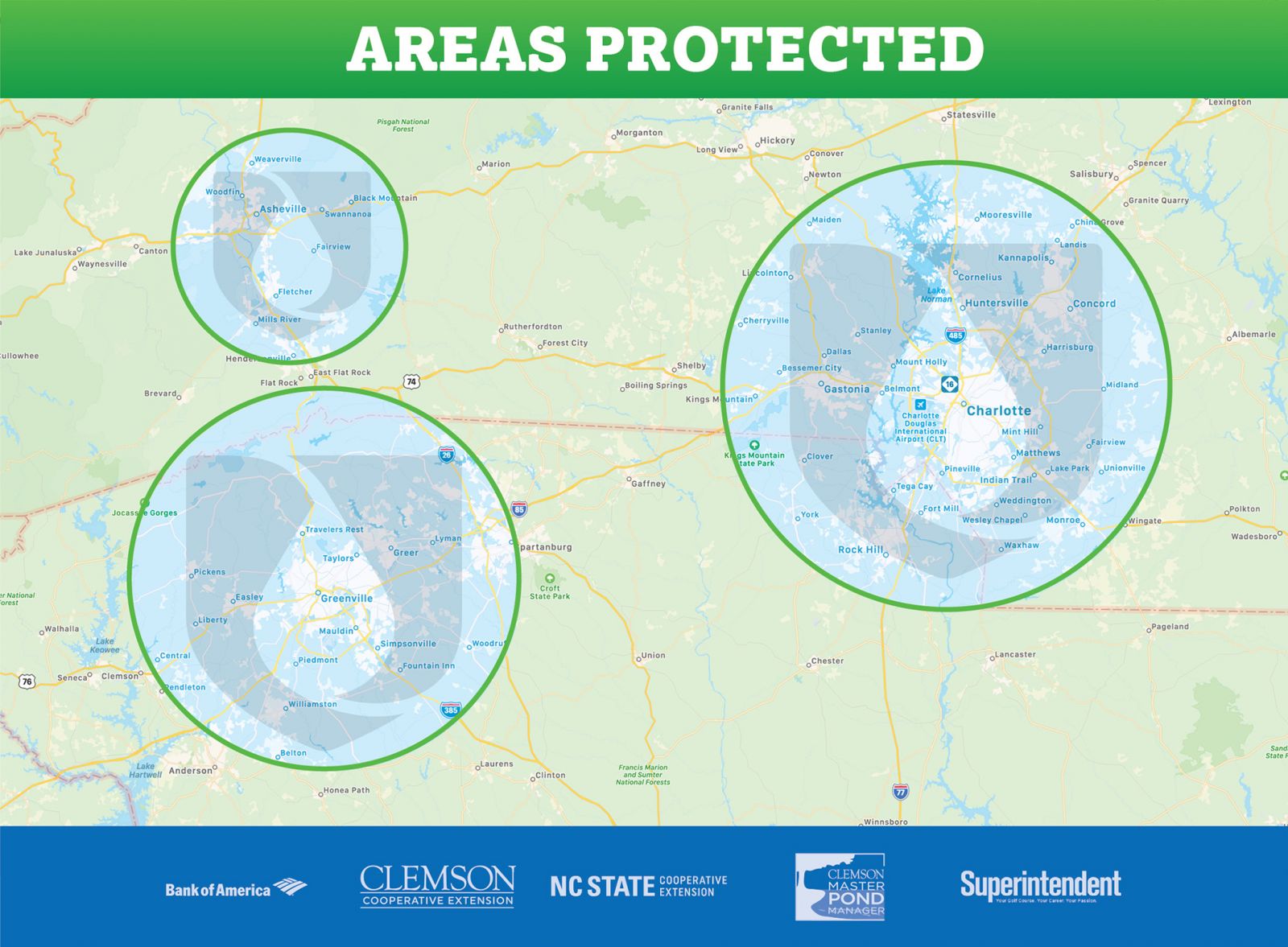The Smith family lives in a neighborhood that has a large pond. The HOA does a great job of keeping the pond beautiful and healthy.
One day, they were walking around the pond and saw some leaves sitting around the edge of the water.
They called their homeowners association to tell that soon the pond could be covered in weeds.
The HOA decided to become members to do what was best for nature and keep their pond healthy.
What is Watershield?
Watershield, also known as Dollar Bonnet and Snot Bonnet, is a perennial plant with floating leaves. Its scientific name is Brasenia schreberi J.F. Gmel and it’s in the Cabombaceae (watershield) family.
What does Watershield look like?
Watershield has floating oval-shaped leaves that do not have a split and are about 2-4 inches in diameter. They have a purple stem that attaches to the middle rust-colored underside of the leaf.
The stem has a distinctive gelatinous slime surrounding it making it a little difficult to grab. In the early summer, you can find a small purple flower attached to the leaves that sit above the surface.
How and where does Watershield grow?
Watershield reproduces through the spreading of both seeds and rhizome. It is common in clear, permanent bodies of water. It does best in open waters where it can form larger colonies.
If there is an excess of nutrients in the pond or lake, it can grow at a rapid rate if it’s not maintained. Dense growth can hinder boating and other activities.
Is Watershield ecologically important?
It provides a great home for sunfish, northern pike, and largemouth bass in Charlotte, NC. Watershield is a popular decoration and most people put them in water gardens.
It is also an excellent source of food. You can find beaver, deer, nutria, muskrat, and other rodents eating the leaves and rhizomes, and you can find ducks eating the seeds. http://www.aquaticbiologists.com/algae—weed-id-guide/floating-weeds/watershield
How do I kill Watershield?
It can be dug up; however, it will keep regrowing from the seeds and rhizomes. To kill the root of the watershield, systemic herbicides will kill all of the plants but will need to be applied multiple times because the plant can grow back.
Now serving Greenville SC, Spartanburg SC, Asheville NC, & Charlotte NC areas.
Get started. Become a member today!




